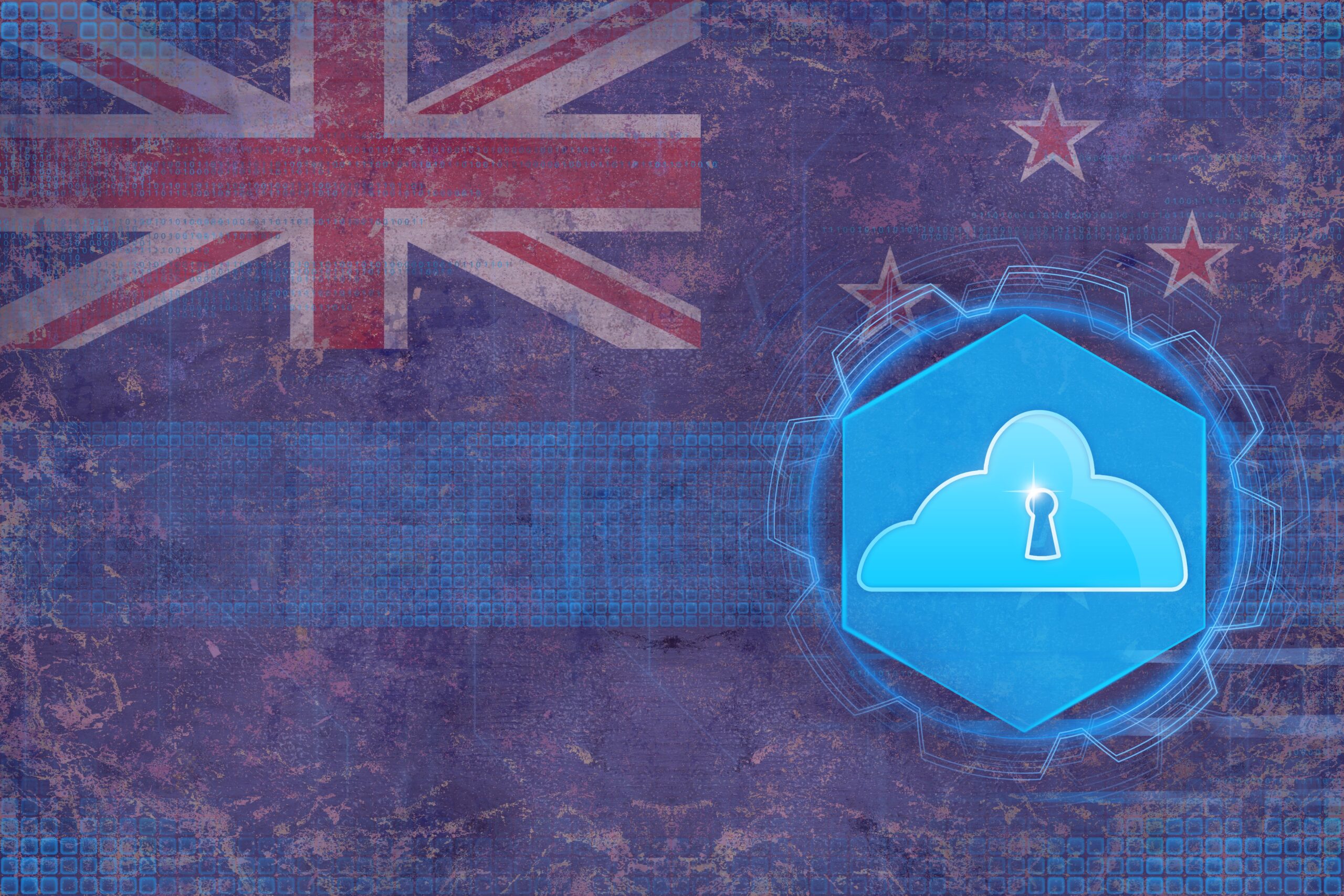Cloud security is a critical concern for Australian businesses. Especially with the increasing adoption of cloud services handling sensitive data across sectors such as finance, healthcare, and public services. In response, global cloud services providers like Amazon Web Services (AWS) and Microsoft Azure ramped up their cloud security offerings tailored to meet Australia’s stringent data protection and privacy regulations. AWS and Azure provide comprehensive security features such as data encryption at rest and in transit, identity/access management, and threat detection capabilities that help businesses protect their data against unauthorized access and cyber threats. These features are designed to comply with local laws like the Australian Privacy Act, which mandates strict data security and privacy standards.
One of the key components of these cloud security services is the multi-layered defense approach. This includes physical security measures at data centers, network security controls such as firewalls, intrusion detection systems, and application-level security features like secure coding practices. Additionally, both AWS and Azure offer dedicated tools for security management, such as AWS Shield for DDoS protection and Azure Sentinel for security information and event management (SIEM).
The Growing Need for Cloud Security Services in Australia
1. Complying with Data Regulations
- Australian businesses are subject to strict data protection laws, such as the Australian Privacy Act. It mandates high standards for securing and managing personal information. To comply with regulations, companies are increasingly turning to cloud security services offered by major providers like AWS and Azure. These services provide encryption, access control, and other security features. These features were designed to safeguard sensitive data in the cloud and meet local compliance requirements.
2. Mitigating Cyber Threats
- Cyber threats like data breaches, ransomware, and distributed denial-of-service (DDoS) attacks pose severe risks to Australian organizations. Cloud security services help defend against these threats through tools for monitoring, detecting, and blocking malicious activities. For example, AWS Shield protects against DDoS attacks, while Azure Sentinel provides security information and event management (SIEM). It can detect threats and respond quickly. By leveraging these security capabilities, businesses reduce vulnerabilities and strengthen their cyber defenses.
3. Gaining Visibility and Control
- For companies migrating critical workloads to the public cloud, maintaining visibility and control over security is crucial. Cloud security services give administrators granular control and a single pane of glass to view and manage security across cloud environments. This includes controlling access, setting security policies, monitoring compliance, and auditing configurations, user activities, and events. Such capabilities help ensure that security practices are standardized, governance requirements are met, and risks are minimized even as infrastructure scales.
In summary, cloud security services are essential for Australian organizations to comply with regulations, counter cyber threats, and keep control of security in the cloud. By leveraging these services, businesses can adopt cloud computing with confidence and focus on their core operations while trusting their data and systems are well-protected.
1. Key Regulations Driving Adoption of Cloud Security

Global cloud providers must comply with stringent data protection regulations that mandate high standards for security and privacy in AU. The Australian Privacy Act of 1988 establishes core principles for handling personal information. These include requirements for data security, access control, and individual consent. The Act applies to any organization that collects, uses, or discloses personal information, including cloud service providers.
Australia Privacy Principles
- The Australia Privacy Principles (APPs) outline specific rules under the Privacy Act. For example, APP 11 which requires organizations to take reasonable steps to protect personal information they hold from misuse, interference, and loss, as well as unauthorized access, modification, or disclosure. This means cloud providers must implement robust security controls and processes. In turn, it can safeguard customer data stored or processed in their clouds.
Notifiable Data Breaches
- The Notifiable Data Breaches (NDB) scheme under the Privacy Act compels organizations to notify affected individuals and the Australian Information Commissioner in the event of an eligible data breach that is likely to result in serious harm. This scheme motivates cloud providers to continuously monitor for and mitigate security risks that could lead to data breaches impacting their customers.
To comply with Australia’s privacy and data security regulations, major cloud providers like AWS and Azure offer a range of built-in security features. Guidance for customers on managing access control, data encryption, logging, and audits are also offered. By leveraging these cloud security services and best practices, organizations that adopt public cloud platforms can ensure their sensitive data is properly protected in accordance with Australian law. Overall, stringent local regulations have been a key driver for cloud providers to strengthen their security capabilities and gain the trust of customers in Australia.
2. How AWS Cloud Security Services Meet Compliance Needs
AWS offers robust cloud security services designed to help Australian organizations comply with local data protection laws. Encryption AWS encrypts data at rest and in transit to prevent unauthorized access. AWS Key Management Service (KMS) generates and controls encryption keys, allowing you to implement strong data protection controls. You can encrypt data stored on Amazon Elastic Block Store (EBS) volumes, Amazon Simple Storage Service (S3) objects, and more.
Identity and Access Management
- AWS Identity and Access Management (IAM) enables you to securely control access to AWS resources. You can create users, groups, and roles, and configure permissions to grant access to specific services and resources. Multi-factor authentication adds an extra layer of protection for user accounts.
Threat Detection
- AWS security services include tools to monitor for and respond to cyber threats. AWS GuardDuty is a threat detection service that monitors for malicious activity like unauthorized infrastructure deployments, API calls, and account takeovers. If suspicious activity is detected, GuardDuty generates security findings for review and remediation. AWS Security Hub provides a comprehensive view of your security posture across all AWS accounts, highlighting areas that require attention.
Data Privacy
- AWS is committed to protecting customer data and privacy. AWS does not access or use customer content for any purpose other than as legally required and as necessary to provide services to customers. AWS assists customers in meeting privacy responsibilities by offering services and features that support compliance with laws like the Australian Privacy Act.
By leveraging AWS’s robust and innovative set of cloud security services, Australian organizations can adopt the cloud with confidence, knowing their sensitive data and workloads are protected. AWS works continuously to expand and enhance its security services to meet the evolving needs of customers and stay ahead of new cyber threats.
3. Microsoft Azure’s Security Capabilities for Australian Businesses
Robust data protection
- Microsoft Azure provides end-to-end encryption for data in transit and at rest within its data centers. This helps Australian organizations meet data security requirements mandated under the Australian Privacy Act. Azure uses industry-standard encryption protocols to encrypt customer data, both when it is being transmitted over networks and when it is stored on Azure storage media.
Identity and access management
- Azure Active Directory is Microsoft’s cloud-based identity and access management service. It allows administrators to control access to resources and applications while simplifying the sign-in experience for end users. Multi-factor authentication, conditional access policies, and privileged identity management help provide an additional layer of security for user sign-ins and access.
Threat protection
- Microsoft Azure provides integrated security monitoring and advanced threat detection across cloud workloads. Azure Security Center uses machine learning and behavioral analysis to detect threats. It can detect compromised resources, malware, and anomalous behavior that could indicate an active attack. Azure DDoS Protection helps protect applications from distributed denial-of-service (DDoS) attacks by maintaining a global network.
Compliance certifications
- Microsoft Azure meets a broad set of international and industry-specific compliance standards, including ISO 27001, SOC 1, and SOC 2. Azure is also certified to handle sensitive government data, meeting standards like FedRAMP, NIST 800-171, and IRAP. These certifications demonstrate Azure’s ability to run security-sensitive cloud solutions in compliance with regulations tailored for the Australian market.
In summary, Microsoft Azure provides Australian organizations with enterprise-grade security capabilities to address risks around data protection, identity management, threats, and compliance when migrating business-critical workloads to the cloud. With Azure, Australian businesses can leverage the benefits of cloud computing with the assurance that their data and applications are secure.
4. Choosing the Right Cloud Security Services for Your Business
Comprehensive Data Protection
- To comply with Australia’s data protection laws, choose a cloud provider that offers robust security features for safeguarding sensitive data. AWS Shield and Azure Sentinel, for instance, provide DDoS mitigation and SIEM capabilities, respectively, to monitor for and respond to cyber threats. Data encryption, both at rest and in transit, is also essential for protecting data from unauthorized access.
Identity and Access Management
- Effective identity and access management controls are crucial for regulating who can access your data and resources in the cloud. Options like AWS IAM and Azure AD enable you to set granular permissions and privileges for users based on the principle of least privilege. Multi-factor authentication, single sign-on, and cloud access security brokers can also help strengthen access control.
Shared Responsibility Model
- Understand that security in the cloud is a shared responsibility between you and the service provider. While AWS, Azure, and others offer advanced security services and features, customers are still responsible for properly configuring them to meet their needs. You will also need to handle security tasks like employee training, data classification, and incident response. Choosing a provider with extensive security tools and expertise can help reduce your workload, but not eliminate it entirely.
Continuous Compliance
- Regulations like Australia’s privacy laws mandate strict security and compliance standards that apply to data hosting. Select a cloud provider that maintains rigorous compliance with applicable laws and industry standards like ISO 27001. AWS and Azure, for example, undergo regular audits and updates to ensure their cloud infrastructure and services meet Australian regulatory requirements. They also provide compliance resources to help customers achieve and maintain compliance.
Continuously evaluating and strengthening your cloud security controls is vital given the dynamic threat landscape. Leveraging the sophisticated capabilities of major cloud providers, combined with your own security best practices, can help safeguard your data and enable your business to harness the benefits of the cloud with confidence.
Key Takeaways
As we consider migrating data and workloads to the cloud, it is reassuring to know that leading providers like AWS and Azure offer robust security services tailored to Australia’s strict data protection laws. Their defense-in-depth approach protects sensitive data through multiple layers of controls, from physical security to network security, access controls, encryption, and more. By leveraging these cloud security services and working closely with a provider, businesses can secure data against threats and focus on using the cloud to innovate and drive their business growth.
More Stories
Southern Cross NEXT Lights Up Pacific with Ultra‑Low‑Latency High‑Capacity Cable
The Southern Cross NEXT (SX NEXT) submarine cable emerges as a pivotal innovation, redefining digital landscapes across the Pacific. Officially operational since July 2022, this 15,857 km four-fiber-pair marvel links Los Angeles and Sydney, with crucial connections to Auckland, Fiji, Tokelau, and Kiribati.
AI-Driven Data Governance: Snowflake’s Strategic Investment in Theom
Demands for strong governance frameworks is rising; Snowflake’s support of Theom highlights importance of integrating AI-native platforms.
Broadcom’s Bold Private‑Cloud Push Shakes Up VMware Ecosystem
By championing VCF, Broadcom aims to reshape the cloud ecosystem with complete, integrated solutions. Moreover, this aligns with rising enterprise demand for private clouds offering top performance, better security, and steady costs.
Mumbai’s Digital Pivot: Bollywood IT Park Becomes NTT’s Data Center Powerhouse
Recently, NTT Global Data Centers & Cloud Infrastructure India made a notable ₹855 crore acquisition. It purchased the Bollywood, Balaji IT Park from the iconic Kapoor family.
FinOps Foundation Amplifies Cost Controls Across Cloud, SaaS & AI
At the FinOps X conference in San Diego, the FinOps Foundation made a major advancement. Specifically, it introduced FOCUS 1.2, the latest version of the FinOps Open Cost and Usage Specification.
Gemini Takes the Initiative: AI That Actually Does Your Tasks
This innovative feature in Gemini allows you to set natural-language prompts to execute specific tasks at designated times.


